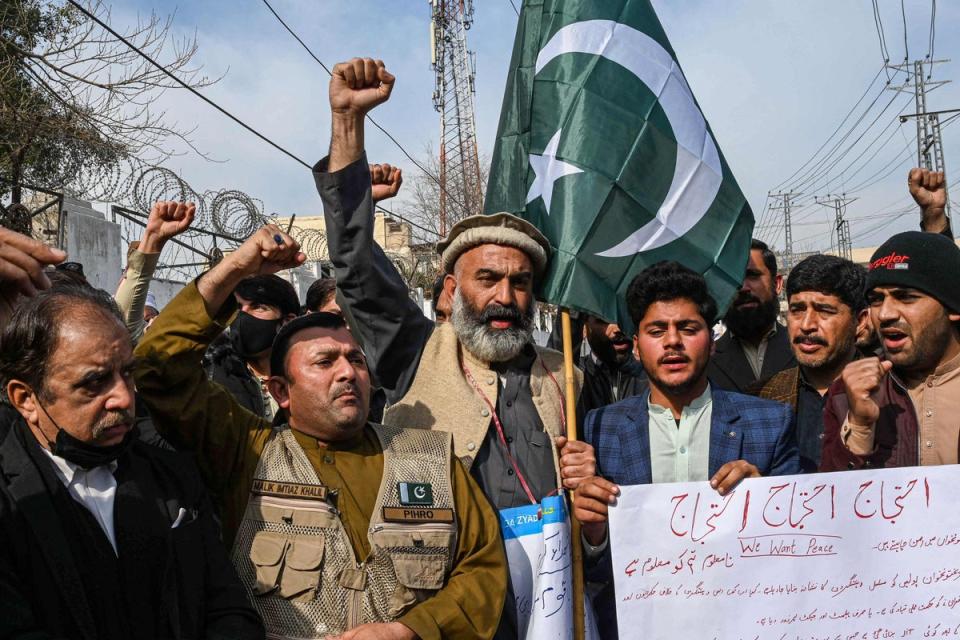Police investigating Pakistan mosque blast find ‘excellent clues’ as inside job not ruled out
Pakistan’s police said it has landed on “some excellent clues” over the deadly suicide bombing at a mosque in Peshawar city and added that the possibility of an inside job could not be ruled out.
The death toll from the deadliest attack in a decade to rock Peshawar soared to 101 on Wednesday as those who were left injured succumbed to their wounds in hospital, said the Khyber Pakhtunkhwa province’s health department.
Peshawar police chief Ijaz Khan told Reuters that they have made “major arrests” in connection with the blast but did not elaborate, citing a continuing investigation.
“We have found some excellent clues, and based on these clues we have made some major arrests,” police chief Khan said.
“We can’t rule out internal assistance but since the investigation is still in progress, I will not be able to share more details.”
A suicide bomber struck a mosque within Police Lines district, a colonial area encampment in the city centre where more than 300 police officers had gathered for noon prayers on Monday.
The blast collapsed the upper storey of the mosque, causing more casualities. All but three of those killed were police officers, making it the largest loss suffered by security forces in a single attack in the country’s recent history.

The bomber was in the first row of the prayer hall when he detonated the explosives, Pakistan’s defence minister Khawaja Asif said.
The attacker’s remains were recovered from the bombing site, provincial police chief Moazzam Jah Ansari said, a day after acknowledging the security lapse that resulted in the attack.
“We believe the attackers are not an organised group,” he added.
The bomb blast has sparked questions on how the explosives that collapsed the roof of the structure made it through security checkpoints and inside the mosque, located within the walled-off police headquarters compound.
Akhtar Ali Shah, a former regional interior secretary once based in Peshawar, said it “was not a spur of the moment attack”.
“It was the handiwork of a well-organised group,” he told the Associated Press. He said those behind the attack must have had inside help to gain access to the compound and probably entered it several times for reconnaissance or even to plant explosives ahead of time.

An initial police report into the the blast said “a severed head has been recovered from inside the debris”, reported the Dawn newspaper.
Officials and police are scrambling for anwers as Pakistan mourned the deaths of the police officers as social media was flooded with emotional videos of family members in shock and crying over their loss.
No has claimed the responsibility of the attack yet. The Pakistan Taliban or the TTP, a militant group in the country, has distanced itself from the bombing, hours after one its members claimed it was a revenge attack carried out by them.
The bombing was the deadliest in Peshawar in a decade after a twin suicide blast at the All Saints Church killed around 127 people in 2013.
Peshawar sits on the edge of Pashtun tribal lands, a region that has been mired in violence for the past two decades.

 Yahoo News
Yahoo News 
